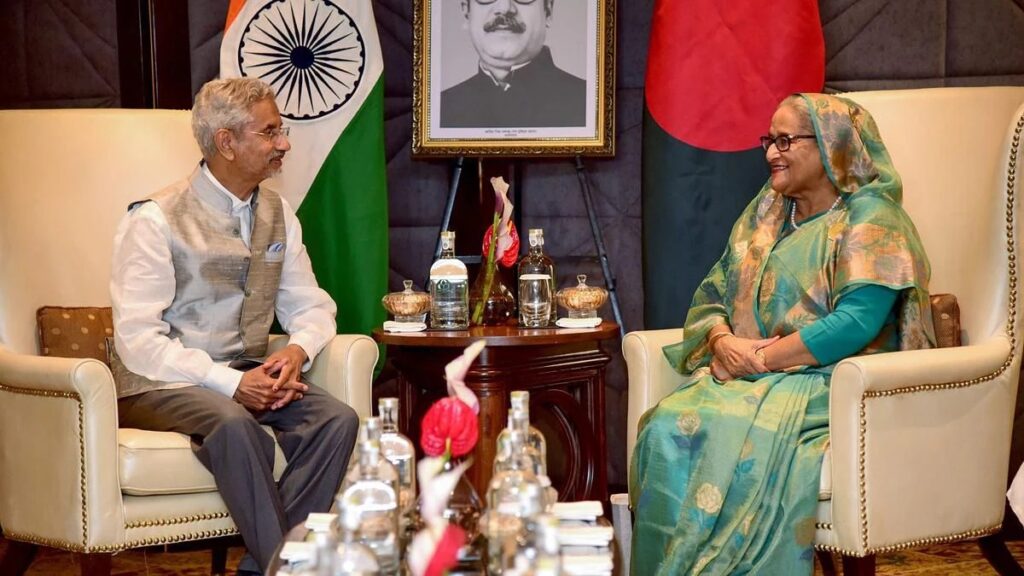Speaking at the Rajya Sabha, External Affairs Minister S. Jaishankar revealed that prior to Sheikh Hasina’s arrival at Hindon Airbase in Ghaziabad, India had received a simultaneous request for flight clearance from Bangladeshi authorities.

External Affairs Minister S. Jaishankar informed the Rajya Sabha on Tuesday that former Bangladesh Prime Minister Sheikh Hasina sought urgent approval to come to India amid political turmoil in her country.
“Following a meeting with leaders of security establishments, PM Sheikh Hasina apparently decided to resign. She requested approval to come to India on very short notice and arrived yesterday evening in Delhi,” Jaishankar stated during his briefing to the Upper House, shortly after an all-party meeting convened by the Centre to address the ongoing crisis in Bangladesh.
Speaking on the situation in Bangladesh, External Affairs Minister Dr S Jaishankar says, “Our understanding is that after a meeting with leaders of security establishments, PM Sheikh Hasina apparently made the decision to resign. At very short notice, she requested approval to… pic.twitter.com/fT9hV94IIo
— ANI (@ANI) August 6, 2024
Jaishankar also mentioned that before Hasina’s arrival at Hindon Airbase in Ghaziabad, a request for flight clearance was simultaneously received from Bangladeshi authorities.
The Indian government has been maintaining close and continuous contact with the Indian community in Bangladesh through its diplomatic missions. “There are an estimated 19,000 Indian nationals there, of which about 9,000 are students. Most of the students returned in July. We are also monitoring the situation concerning the status of minorities,” Jaishankar added.
In recent weeks, Hasina faced significant backlash due to violent protests and widespread riots over the controversial quota system, resulting in over 300 deaths. Protesters in Dhaka carried banners demanding Hasina’s resignation. Amid escalating unrest, Hasina resigned as prime minister and fled to Delhi.
The protests, which began over a quota system for government jobs, turned violent on July 16 when student activists clashed with security officials and pro-government activists. Authorities responded with tear gas, rubber bullets, and a curfew with a shoot-on-sight order, alongside turning off internet and mobile data services.












